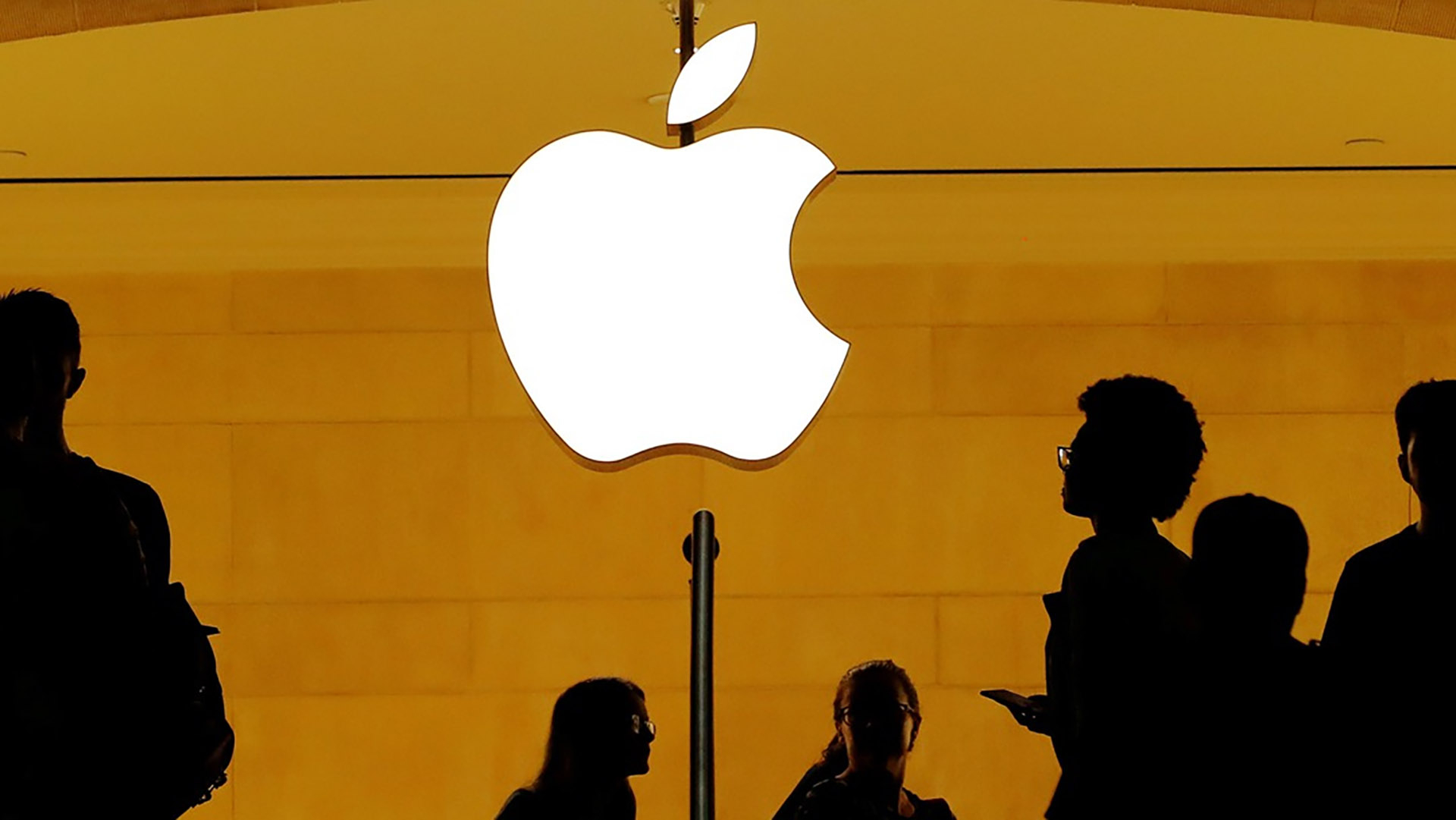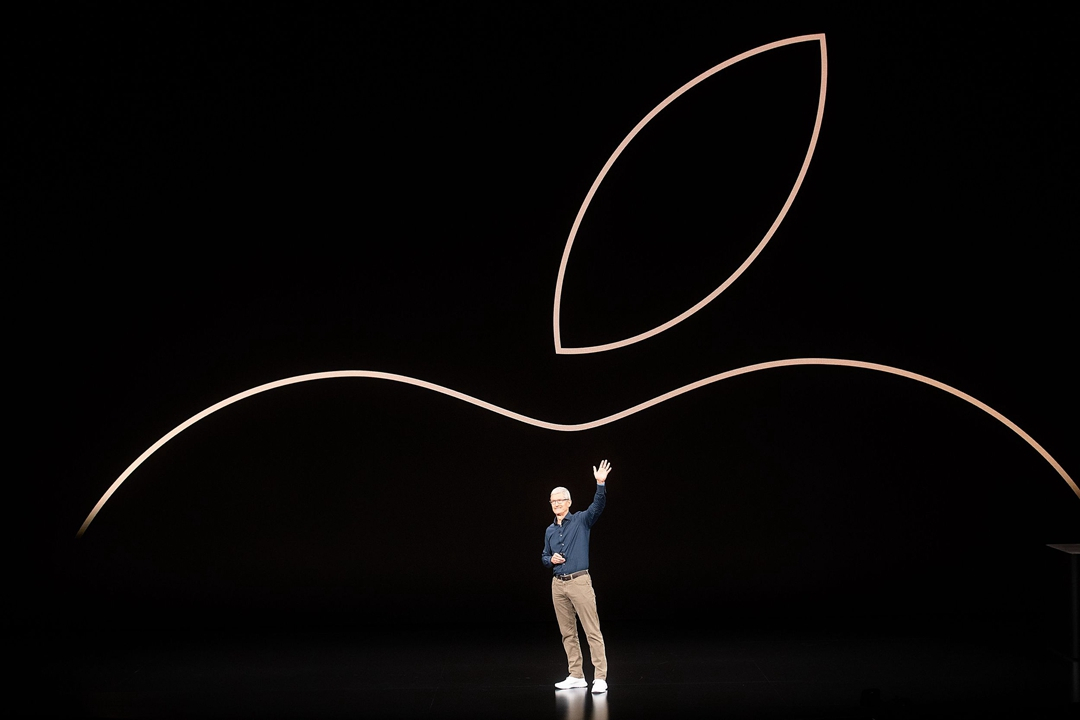
Company
08:16, 30-Jan-2019
CEO Time Cook says trade tensions easing as Apple's services business grows
Updated
21:41, 30-Jan-2019
CGTN
01:33

Apple Inc. on Tuesday reported sharp growth in its services business and Chief Executive Tim Cook said trade tensions between the U.S. and China were easing, helping its shares up even after sales of its iPhone dipped in the holiday shopping quarter.
Apple said sales for its fiscal second quarter would most likely be lower than Wall Street expected, a signal that it continues to face weak demand for its iPhone, especially in China, the world's biggest smartphone market, but investors focused on the company's growing services, which include Apple Music and its App Store.
“The services number is good, and that is the growth engine going forward that people will continue to focus on,” said Ivan Feinseth, an analyst with Tigress Financial Partners.
The company's shares rose 6 percent to 163.50 U.S. dollars in after-hours trading.
Cook, who is in regular contact with U.S. President Donald Trump, said trade tensions with China, which may have depressed sales of its phones, were easing.
“If you were to graph up trade tension it's clearly less in January than it was in December,” Cook told Reuters in an interview. “I'm optimistic that the two countries will be able to work things out.”

Apple CEO Tim Cook waves to the audience during an event in Cupertino, California, September 12, 2018. /VCG Photo
Apple CEO Tim Cook waves to the audience during an event in Cupertino, California, September 12, 2018. /VCG Photo
Subscribers up
Apple said revenue from services, which investors are counting on to fuel growth, reached 10.8 billion U.S. dollars, in line with Wall Street estimates. Services gross margin hit 63 percent.
The company said it now has 360 million subscribers to both its own and third-party services, and set a goal to expand that to 500 million by the end of 2020. It said it now has 1.4 billion active devices, an increase of 100 million from last year, and that 900 million of those are iPhones.
By contrast, streaming service Netflix Inc. ended 2018 with 139 million paid subscribers and Amazon.com Inc. has more than 100 million subscribers to its Prime shipping and content service.
However, Apple counts both subscribers to its own services as well as Apple device users who subscribe to outside apps or services using Apple's payment systems. Apple keeps up to 30 percent of the payments it handles.
Apple's iPhone revenue declined 15 percent year over year to 51.9 billion U.S. dollars. Apple claimed that its revenue growth in music, movies, apps and other services could offset slumping iPhone sales.
He said Apple is rethinking how it prices the iPhone outside the U.S. after largely setting the price in U.S. dollars, which made the phones more expensive in local currencies.
“When you look at foreign currencies and then particularly those markets that weakened over the last year those (iPhone price) increases were obviously more,” Cook told Reuters. “And so as we've gotten into January and assessed the macroeconomic condition in some of those markets we've decided to go back to more commensurate with what our local prices were a year ago in hopes of helping the sales in those areas.”
Outlook largely below Wall Street
Apple said it expects revenue between 55 billion U.S. dollars and 59 billion U.S. dollars for the current quarter ending in March, largely below analysts' average estimate of 58.83 billion U.S. dollars, according to IBES data from Refinitiv.
For the quarter ending in December, Apple's busiest due to the holiday shopping season, Apple reported revenue of 84.3 billion U.S. dollars, slightly above analysts' average estimate of 84 billion U.S. dollars. Apple warned in early January that the quarter's sales would miss targets it gave in November.
Apple reported earnings per share of 4.18 U.S. dollars for the December quarter, compared with Wall Street's average estimate of 4.17 U.S. dollars, according to Refinitiv data.
The company's investors have been closely tracking the company's share repurchase activity in hopes that it will help buoy the share price, which has fallen more than 30 percent since November, knocking Apple off its throne as the world's largest technology company with a market value of more than one trillion U.S. dollars.
Apple said it returned 13 billion U.S. dollars to shareholders through dividends and buybacks in the quarter ended in December, a far smaller figure than the 19.4 billion U.S. dollars in stock it purchased in the previous quarter ended in September. Apple said its net cash position – its cash minus its debt – was 130 billion U.S. dollars, an increase from 123 billion U.S. dollars in the previous quarter. Apple has publicly said it plans to draw its net cash position to zero.
"iPhone, it's going through some significant growing pains. I think specifically in China, where you're seeing the softness. And Apple needs to get over this hump, not just on new iPhone models that are going to come out over the coming year. But I think it just shows you are just seeing a softness across the board with China the key on the smartphone side," said Danielives, managing director of Wedbush Securities.
However, the company for the first time stopped reporting unit sales for its iconic smartphones, making the full extent of the sales slump unclear. Experts said that's a signal that Apple continues to face weak demand for its iPhone.
"Yeah, I mean other products, you saw growth across wearable, across some of the Macs, across, you know, iPads had definitely some spots of strength. But at the end of the day it's an iPhone story and that's why right now services continue to be the silver lining and I think it's key to the valuation going forward," Danielives added.
(CGTN's Liang Rui also contributed to the story.)
Source(s): Reuters

SITEMAP
Copyright © 2018 CGTN. Beijing ICP prepared NO.16065310-3
Copyright © 2018 CGTN. Beijing ICP prepared NO.16065310-3